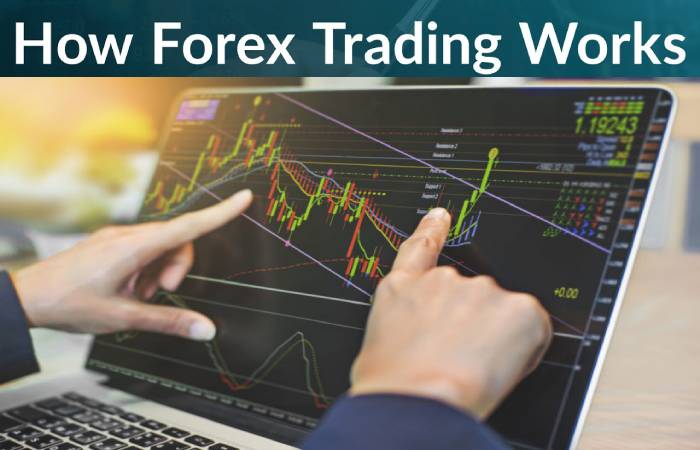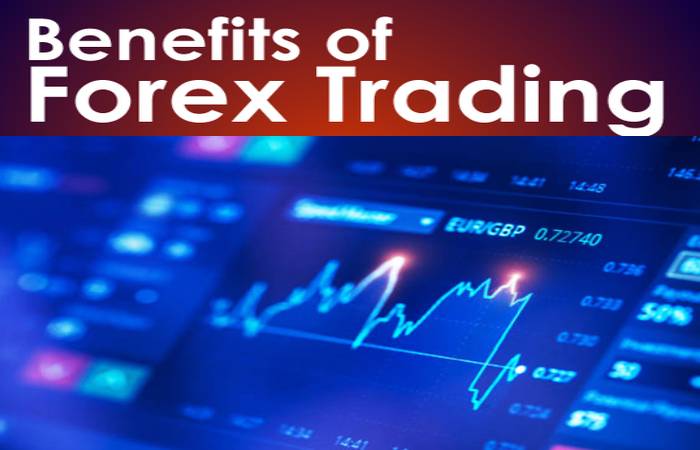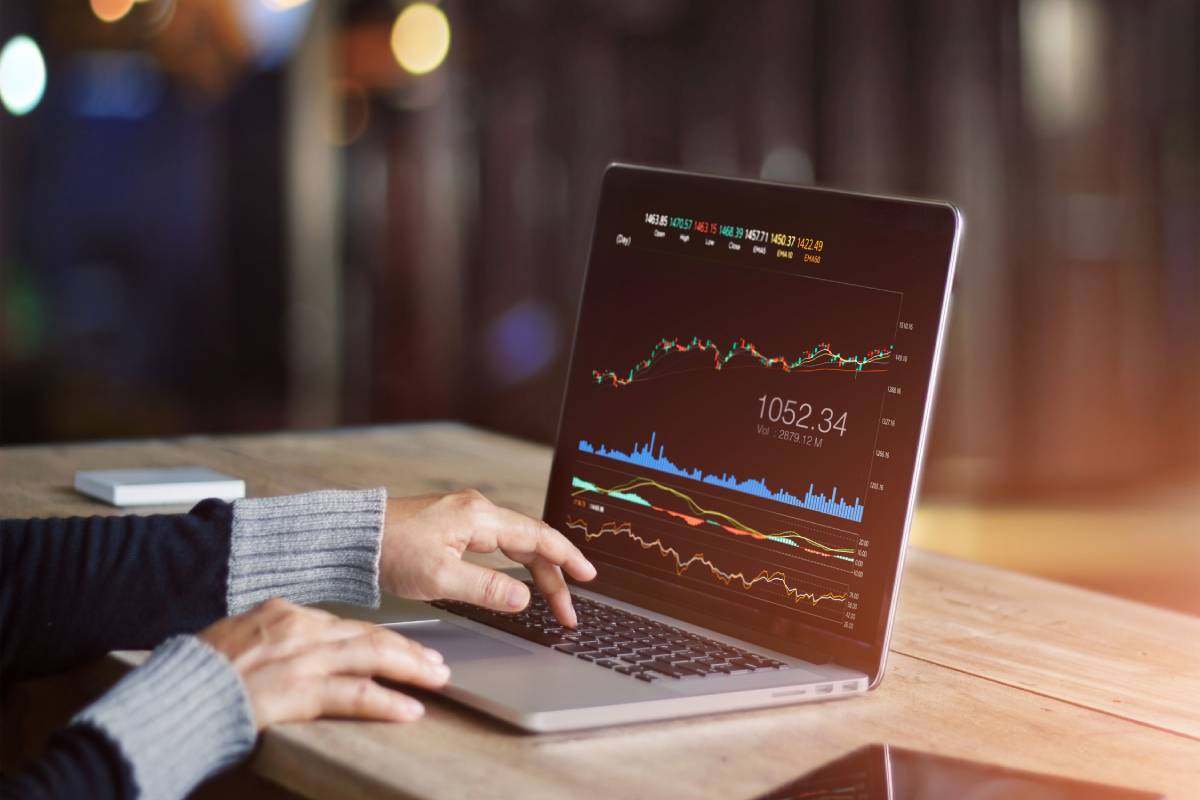Table of Contents
What is Forex Trading?
Forex trading can be explained as a network of buyers and sellers who transfer currency between them at an agreed price.
It is how individuals, companies and central banks convert one currency into another. If you have ever travelled abroad, then it is likely you have made a forex transaction.
While a lot of foreign exchange is done for practical purposes, the vast majority of currency conversion is undertaken to profit. The amount of currency converted every day can make price movements of some currencies extremely volatile.
This volatility can make forex so attractive to traders: bringing about a greater chance of high profits and increasing the risk.
How does Forex Trading Work?

- You can trade forex in various ways, but they all work the same way: simultaneously buying one currency while selling another.
- Traditionally, many forex transactions have been made via a forex broker. With the rise of online trading, you can take advantage of forex price movements using derivatives like CFD trading.
- CFDs are leveraged products, which enable you to open a position for just a fraction of the trade’s total value.
- Unlike non-leveraged products, you don’t take ownership of the asset but take a position on whether you think the market will rise or fall in value.
- Although leveraged products can magnify your profits, they can magnify losses if the market moves against you.
What is the Spread in Forex Trading?
The spread is the difference between the buy and sell prices quoted for a forex pair. Like many financial markets, you’ll be presented with two costs when you open a forex position.
If you want to open a long position, you trade at the buy price, which is slightly above the market price. If you’re going to open a short post, you sell at the selling price – somewhat below the market price.
Benefits of Forex Trading

When traders choose which market to trade, they look for optimal trading conditions and the best chance to profit. There are many reasons why millions of traders across the world think that the forex market fits these criteria. But we are going to focus on the top nine benefits of forex trading:
1. Ability to Go Long or Go Short
- While you can go short on other markets by using derivative products, such as CFDs, short selling is an inherent part of trading forex.
- You are always selling one currency (the quote currency) to buy another (the base currency). The price of a forex pair is how much one unit of the base currency is worth in the quote currency.
- For example, in the forex pair GBP/EUR, GBP is the base currency, and EUR is the quote currency. If GBP/EUR is trading at 1.12156, then one pound is worth 1.12156 euros.
- If you think that the pound will increase against the euro, you will buy the pair (going long). And also, if you believe that the pound will decrease in value against the euro, you will sell the team (going short).
- Your profit or loss will depend on the extent to which you get your prediction right, meaning it is possible to profit whichever way the market moves.
2. Forex Market hours
- The foreign exchange market is open 24 hours a day, five days a week – forex can be traded from 9 pm Sunday to 10 pm Friday (GMT).
- These extended hours are because forex transactions are completed between parties directly, over the counter (OTC), rather than through a central exchange.
- And because forex is a genuinely global market, you can always take advantage of different active session’s forex trading hours.
- It is important to remember that the forex market’s opening hours will vary in March, April, October and November, as countries shift to daylight savings on different days.
3. Does Forex Trade on Weekends?
- The forex market closes on Friday at 10 pm (UK time) and does not open again until 9 pm (UK time) on Sunday evening.
- However, because the market is only closed to retail traders (not central banks and related organisations), forex trading does take place over the weekend.
- It means that there can be a difference in price between Friday close and Sunday open – known as a gap.
- Traders need to be highly aware of the weekend forex trading hours and alter their positions accordingly.
- Suppose you do not want to expose your position to the risk of gapping. You may want to consider closing your work on Friday evening or placing stops and limits to manage this risk.
4. High Liquidity in Forex
- The FX market is the most liquid globally, meaning many buyers and sellers are looking to make a trade at any given time.
- Each day, over $5 trillion of currency is converted by individuals, companies and banks – and the vast majority of this activity intend to generate a profit.
- The high liquidity in forex means that transactions can complete quickly and easily. So the transaction costs – or spreads – are often meagre.
- This creates opportunities for traders to speculate on price movements of just a few pips.
5. Forex Volatility
- The high volume of currency trades each day translates to billions of dollars every minute, making the price movements of some currencies extremely volatile.
- You can potentially reap enormous profits by speculating on price movements in either direction.
- However, volatility is a double-edged sword – the market can quickly turn against you. So it’s essential to limit your exposure with risk-management tools.
6. Leverage can Make your Money go Further.
- IG offers a way to trade foreign exchange pairs using CFDs. CFDs leverage, which can make your money go further.
- Leverage in forex enables you to open a position on the currency market by paying just a tiny proportion of the position’s total value upfront.
- The profit or loss you make will reflect the position’s total value at the point it closes. So trading on margin offers an opportunity to make large profits from a relatively small investment.
- However, it can also amplify any losses, meaning losses could exceed your initial deposit. For this reason, it’s essential to consider the total value of the leveraged forex position before trading CFDs.
- IG offers a range of risk-management tools to help you manage your risk, including stop losses, guaranteed stops, price alerts, and running balances.
7 . Trade a Wide Range of Currency Pairs
Forex trading allows you to trade a wide variety of currency pairs, speculating on global events and major and minor economies’ relative strength.
With IG, for example, you can choose from over 90 currency pairs, including:
- Major currency pairs, e.g. GBP/USD, EUR/USD, and USD/JPY
- Minor teams, e.g. USD/ZAR, SGB/JPY, CAD/CHF
- Emerging currency pairs, e.g. USD/CNH, EUR/RUB and AUD/CNH
- Exotic pairs, e.g. EUR/CZK, TRY/JPY, USD/MXN
- These pairs are all available to trade from the same account via a single login.
8. Hedge with Forex
- Hedging is a technique that can reduce the risk of unwanted moves in the forex market by opening multiple strategic positions.
- Although volatility is part of what makes forex so exciting, hedging can be a good way of mitigating loss or limiting it to a known amount. You can use various strategies to hedge forex, but hedging with multiple currency pairs is one of the most common.
- By choosing forex pairs that positively correlate, such as GBP/USD and EUR/USD.
- But taking positions in opposite directions can limit your downside risk.
- For example, a loss on a short EUR/USD position could mitigate by a lengthy post on GBP/USD.
- Alternatively, you could use forex to hedge against loss in other markets, such as commodities.
- For example, because the USD/CAD generally has an inverse relationship with crude oil, it commonly uses as a hedge against falling oil prices.
9. Access Tools to Help you Trade
- IG offers a range of trading platforms on the web, mobile and tablet, as well as specialist media for those looking to take their trading to the next level.
- You can get access to a range of features designed to help improve your trading.
- It includes risk management tools like stops and limits, interactive charts, and integrated news feeds.
- We also offer some products designed to improve your forex trading: IG Academy load with clear. And engaging forex trading courses designed with the beginner in mind.
- Our demo account gives you access to $20,000 in virtual funds to try forex trading and our technology without committing any capital.
Why Forex Trading Instead of Stocks?
Your decision about whether to trade forex or stocks on leverage should base on which asset you interest in trading – currencies or shares. However, there are a few reasons why some traders prefer forex trading to stocks:
Market Opening Hours
- The stock market limit to an exchange’s opening hours, whereas the forex market is open 24-hours a day. However, it is worth noting that specific stock indices are available for weekend trading.
Higher Liquidity
- The forex market sees an average daily turnover of $5 trillion, whereas the stock market sees comparatively fewer traders per day.
Greater Volatility
- The stock market tends to have more stable prices that change over a longer time.
- Although this is a great thing for some trading styles, the forex market’s volatility can create an exciting range of opportunities for shorter-term traders.
- When you decide whether forex or the stock market is better for you, you should consider your attitude to risk and your financial goals.
Also Read: What is Book Value? – Understanding, Uses, Mark, and More


